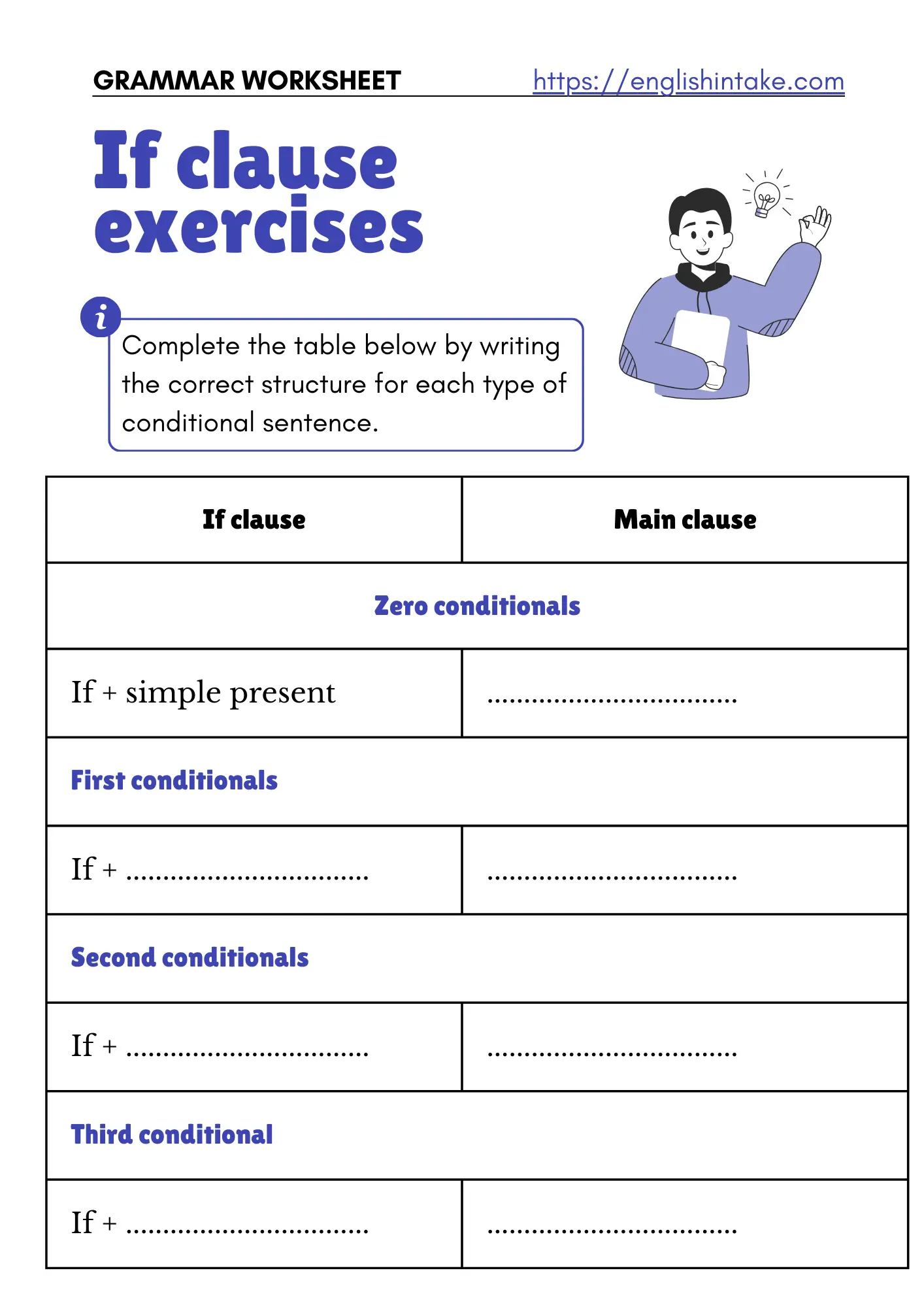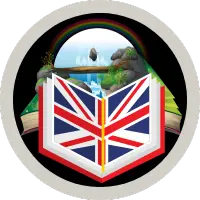Do the following if clause exercises to practise all conditional sentence types, including the zero, first, second, and third conditionals. Each exercise has clear explanations and answers.
Exercise 1: If clause type 0
Complete each sentence to form a type 0 if-clause (zero conditional), used for general truths, habits, or facts.
1. If you (press) this button, the machine (start).
2. If you (heat) ice, it (melt).
3. If plants do not get enough sunlight, they (die).
4. If we do not eat, we (starve).
5. If you (bend) glass, it (break).
Exercise 2: First conditionals
Complete each sentence to form a type 1 if-clause (first conditional), expressing a possible future result. Do not use a short form.
1. If you (study) well, you (pass) the test.
2. If it (rain), we (stay) home.
3. If they (arrive) late, we (start) without them.
4. If you (not hurry), you (miss) the train.
5. If I (see) him, I (tell) him the news.
Exercise 3: Second conditionals
Complete each sentence with the correct tense to form a type 2 if-clause (second conditional), describing imaginary or unlikely situations.
1. If I (have) money, I (travel) often.
2. If I (be) you, I (buy) a new car.
3. If we (live) in Paris, we (speak) French every day.
4. If he (be) my boyfriend, I (be) happy.
5. If my mom (know) how to play the guitar, she (teach) me.
Exercise 4: third conditionals
Complete each sentence using the third conditional type to talk about past situations that did not happen.
1. If she (know) the answer, she (tell) me.
2. If we (leave) earlier, we (catch) the bus.
3. If I (not/cheat) on her, our relationship (last) much longer.
4. If the rescue team (arrive) on time, my brother (be) saved.
5. If the driver (press) the brake, the accident (not/happen).
If clause exercises - worksheet

| Type | If clause | Main clause |
|---|---|---|
| Zero conditionals | If + present simple | present simple |
| First conditionals | If + present simple | will + base verb |
| Second conditionals | If + past simple | would + base verb |
| Third conditionals | If + past perfect | would have + past participle |
